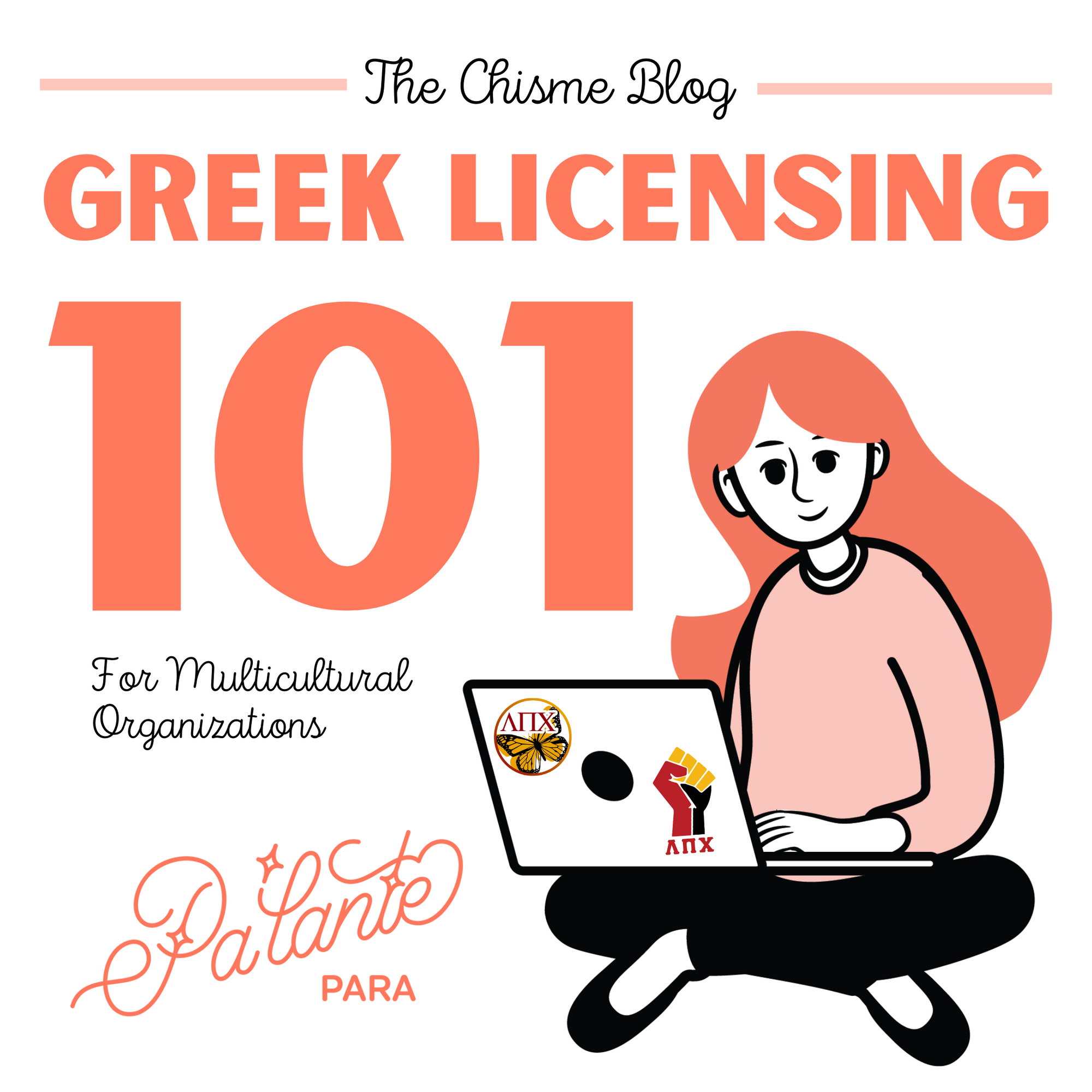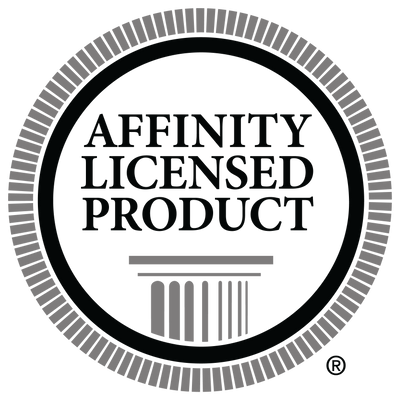Greek Licensing 101
•Posted on July 15 2020

Hola mujeres! Whether you're trying to make your #JefaMoves and start your own Greek apparel business, or if you're just curious to learn how things work, this blog entry will cover some of the basics of licensing for Latinx/multicultural Greek organizations.
Learning about licensing was my first major hurdle in setting up Pa'lante (and there's not much out there in the way of guidance!) But because I cared about Pa'lante being a sustainable, long-term business, I decided to do things the right way by becoming officially licensed for any organization I wanted to make para for. Just a quick disclaimer: I am by no means an expert, and this isn't legal advice, just my own observations and experiences. I'll be going over the four different types of licenses that I've come across, and the pros and cons of all of them!
Why should I care & how does licensing affect me?
Licensing ensures that the folks you buy from are using your letters and symbols correctly, as this grants them the rights to your organization's trademarks and branding standards. Vendors are vetted and held to a higher quality standard, so you run less risk of getting bad para. On top of that, vendors are often required to submit payment and/or royalties (a percentage of sales) to your organizations. So, by buying from a licensed vendor, you are putting money back into your org!
For anyone thinking about selling - becoming licensed will ensure that you do not run into any legal troubles down the line for using trademarked letters and symbols without permission 💀

Affinity Greek Licensing
Greeklicensing.com (Affinity) is the biggest fraternity and sorority licensor and is used by most large Greek-lettered organizations. Affinity generally uses a combination of a low flat-rate licensing fee with royalties, but it all depends on the organization's preferences. See if your organization works with Affinity by searching on their site.
Pros:
- Professional and knowledgable staff
- Manage and pay your licenses in one platform and get reminders when royalties are due
- Streamlined and quick approval process for designs, contracts
- Pretty easy to get started, lots of resources available
Cons
- Not beginner-friendly (requires a lot of prerequisites before you can sell which can be daunting for anyone starting from scratch, including insurance, manufacturing agreements, etc.)
- Not very compatible with the print-on-demand model
- Manufacturing agreement can be difficult to set up if you don't create your apparel in-house, since your manufacturer also needs to meet specific insurance requirements and sign a contract (not all are willing to do this)
Personal thoughts: overall I like Affinity's platform, but I have also had a lot of roadblocks as I've navigated the learning curve to work with them. Currently, a good portion of my business is based on the print-on-demand model. My POD manufacturer is unable to place the licensing stickers required on all of the garments, so I cannot use POD with Affinity organizations. My next step was to find a manufacturer who would agree to the manufacturer's agreement with Affinity to print para with, and now financing the up-front cost of having the items made in bulk. Although I've been officially licensed for Sigma Lambda Gamma and Lambda Theta Alpha for a year, I haven't been able to do anything with those licenses because I straight up haven't been able to afford to yet.

Independent Licenses
Most other organizations that don't contract with Affinity will handle their own licensing agreements internally. These agreements are usually based on either a flat-fee model or royalties, with discounts for vendors who belong to the organization they are being licensed for.
Flat fees can range in the hundreds of dollars and are renewable per year.
Pros:
- "Pay it and forget it," no need to calculate royalties
- Prospective of making more profit
- Larger lump sum payment can be cost-prohibitive
Royalty models are also super common and can range from 5%-10% of sales
Pros:- You only pay based on the sales you make, nothing more or less
- Great for those who don't have a ton of starting money
- Your bookkeeping has to be on point because you'll need to report all of your sales and remember when to submit payments
- If you have multiple organizations with this model it can be a lot to keep up with
Personal thoughts: Independent licenses are a lot more flexible and beginner-friendly, which I appreciate! On the other hand, it can sometimes be difficult to get in contact with national executive boards, as they are not paid and often have a lot on their plates. On top of that, the variety of different models and rates can make it harder to keep up with multiple organizations.

No License
Lastly, organizations that have no licensing setup can be a total wildcard! On one hand, you do not have to worry about submitting payments, but the same challenge above applies in that it can be hard to get in touch with organizations to ask questions or get branding information. It's pretty easy to accidentally make a design faux pas by messing up details that an initiated member would notice right away (colors in the wrong order, for instance.)

Comments
0 Comments
Leave a Comment